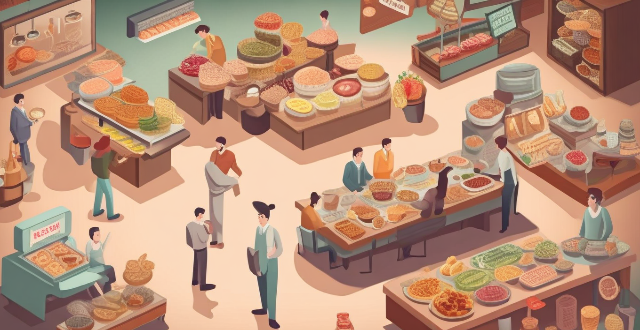The article discusses the top-rated restaurant management systems (RMS) available in the market, which are essential tools for streamlining operations and improving efficiency in the food service industry. The following RMS are listed: Toast, Lightspeed, Clover, Upserve, Square, TouchBistro, Rezku, and Aldelo. Each system has unique features and benefits that cater to different types of restaurants and their specific needs. When selecting an RMS, it is important to consider factors such as cost, scalability, ease of use, integration capabilities, and the specific requirements of the restaurant.

Best Restaurant Management Systems
Restaurant management systems (RMS) are essential tools for streamlining operations and improving efficiency in the food service industry. These systems help with various aspects of restaurant management, such as inventory control, employee scheduling, customer relationship management, point of sale (POS), and more. Here are some of the top-rated restaurant management systems available in the market:
1. Toast
- All-in-One Solution: Toast offers a comprehensive suite of services including POS, marketing, and customer management.
- Integration Capabilities: It integrates well with other software solutions like accounting systems and delivery platforms.
- Customer Engagement: Features like digital guestbooks and feedback collection enhance customer experience.
- Customizable: Allows for customization to fit different types of restaurants and their unique needs.
2. Lightspeed
- User-Friendly Interface: Designed with simplicity in mind, making it easy for staff to learn and use.
- Inventory Management: Offers real-time inventory tracking and automated ordering based on sales trends.
- Multi-Location Support: Ideal for restaurant chains or businesses with multiple outlets.
- Reporting Tools: Provides detailed analytics to help make informed business decisions.
3. Clover
- POS System: A robust POS system that is both reliable and fast.
- Hardware Options: Offers a range of hardware options to suit different establishment sizes and styles.
- Payment Processing: Includes integrated payment processing capabilities.
- App Marketplace: Access to a variety of apps to expand functionality beyond basic POS features.
4. Upserve
- Data Analytics: Known for its advanced analytics tools that help identify trends and opportunities.
. Marketing Automation: Automates marketing efforts, such as email campaigns tailored to customer behavior.
- Inventory Forecasting: Uses data to predict future inventory needs, reducing waste and saving costs.
- Customer Relationship Management (CRM): Effective CRM tools to build loyalty and repeat business.
5. Square
- Affordable: Square offers competitive pricing without sacrificing essential features.
- Simplicity: Easy setup and user-friendly interface make it suitable for small businesses.
- Mobility: Great for mobile businesses or pop-up events due to its portable card readers and devices.
- Integrations: Seamlessly integrates with accounting software and eCommerce platforms.
6. TouchBistro
- Designed for iPad: Fully leverages the capabilities of iPad devices for an intuitive interface.
- Menu Customization: Allows for flexible menu changes, which is beneficial for seasonal offerings or specials.
- Dining Experience: Emphasizes improving the dining experience through tableside ordering and payment.
- Reporting & Analytics: Provides insightful reports to help manage and grow your business effectively.
7. Rezku
- Guest Intelligence Platform: Specializes in gathering and analyzing customer data to improve marketing efforts.
- Loyalty Programs: Helps create effective loyalty programs to retain customers.
- Feedback Collection: Solicits feedback from customers to continuously improve service quality.
- Integration with Other Systems: Works well with other restaurant management systems to provide a seamless experience.
8. Aldelo
- Enterprise Level: Tailored towards larger restaurant groups or franchises.
- Broad Range of Features: Covers everything from labor costing to inventory management.
- Customizable Reporting: Offers highly customizable reporting options to suit specific business needs.
- Training & Support: Provides comprehensive training and ongoing support for users.
When selecting a restaurant management system, consider factors such as cost, scalability, ease of use, integration capabilities, and the specific needs of your restaurant. Each system has its strengths, so it's important to choose one that aligns with your operational goals and workflow.